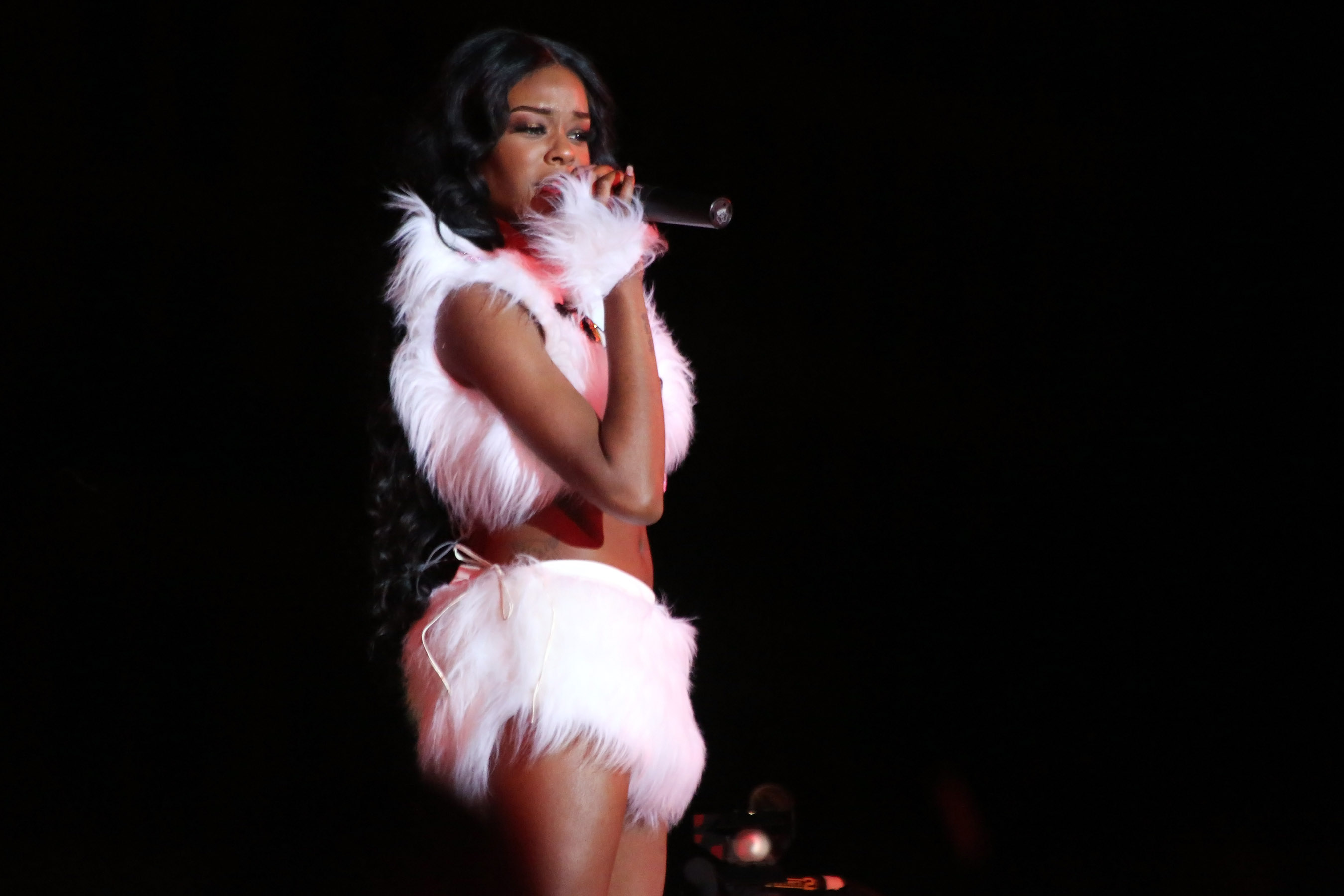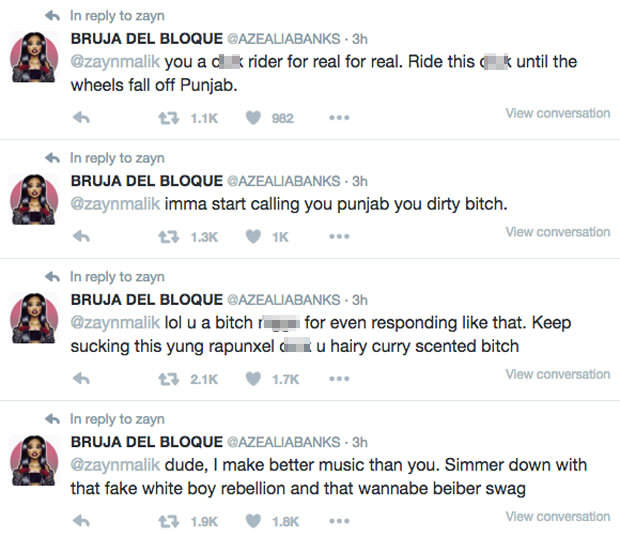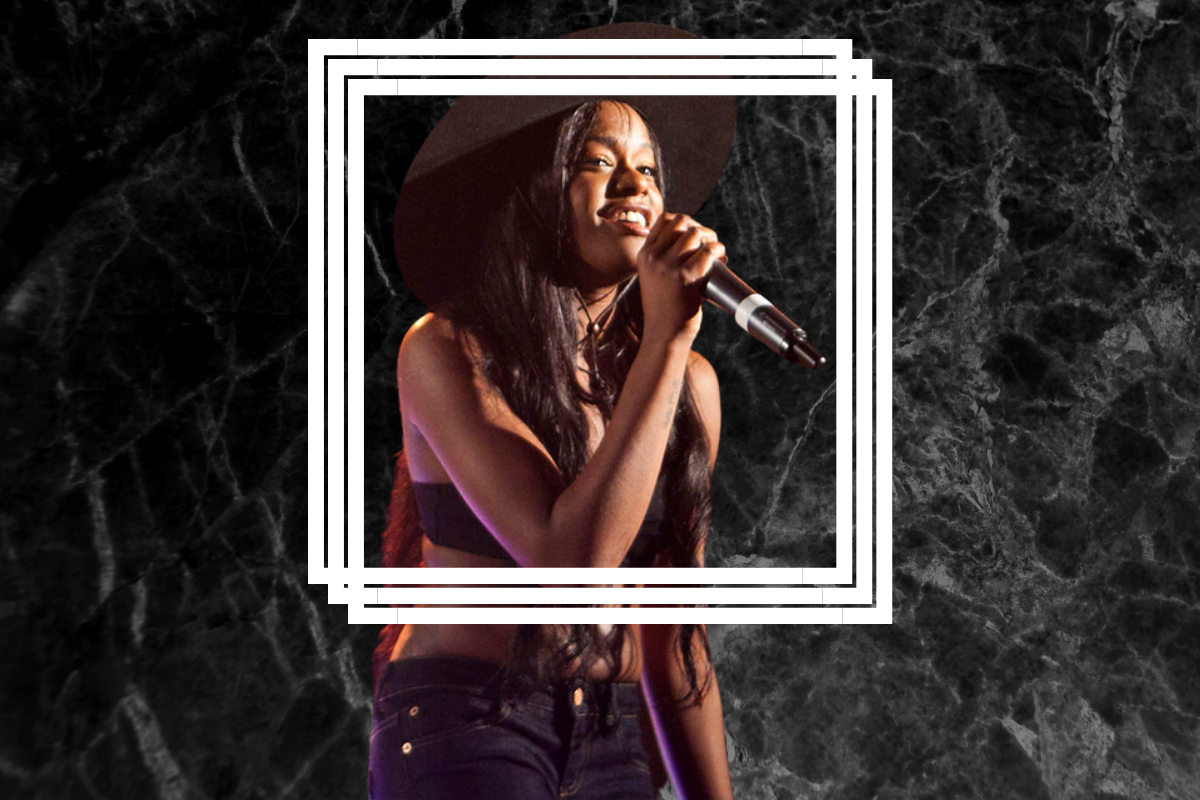
Can we excuse Azealia Banks on account of her bipolar disorder?
Joanna Sing and Aditi Shivaramakrishnan
16 May 2016
Azealia Banks has been breaking our hearts for a while now. Consistently outspoken on social media and in interviews (see her calling out Iggy Azalea’s “runaway slave master” lyric and condemning the “cultural smudging” of hip-hop), she has become frequently problematic and offensive. Most recently, Banks came for ex-One Direction singer Zayn Malik, in a series of racist and homophobic tweets that culminated in a suspension of her Twitter account and the cancellation of her headline slot at London’s Born and Bred festival. During the immediate aftermath, Banks also attacked 14-year old actress Skai Jackson, after Jackson called Banks out on her disgusting comments.
Last year, Banks was filmed using homophobic slurs against a flight attendant who intercepted an altercation between her and another passenger, then two days later spewed even more homophobic vitriol on Instagram. In February of this year, Banks proclaimed her support for US presidential candidate Donald Trump on Twitter, after asking her fans on Instagram in September 2015: ‘“Do you think it’s bad that I sort of agree with Trump’s stance on immigration?’ (the stance in question being mass deportation of immigrants in the US and the building of a wall across the Mexican border).
At various points in Banks’ career of publicly insulting people, her behaviour has been linked, by both herself and spectators, to her bipolar disorder and status as a survivor of domestic and childhood abuse. This is something that has inspired both pity and derogation; following the plane incident, journalist Starr Rhett wrote a piece for HelloBeautiful wishing “that in dealing with this crazy industry, being so vulnerable, and people having too much access to her online, that there’s at least one person in her life who can make her get much needed therapy”. Others have not been so sympathetic; US entertainment website Gossip On This called her a “bipolar hip-hop princess” who was “five shades of crazy” after she insulted Kanye West and Wale on Twitter.
Taking Banks’ bipolar disorder into consideration when discussing her hateful comments further complicates an issue, which is already entangled in race and gender power dynamics and expectations of how marginalised people should act in public and towards other marginalised communities.
On the one hand, blaming Banks’ behaviour on her bipolar disorder harms those who suffer from mental health conditions. It perpetuates the stereotype that we are crazy, psychotic, unstable, even dangerous. It reinforces the myth that mentally ill people are violent, when in actuality “people with mental health problems are more dangerous to themselves than they are to others” (Time to Change). It also does little to address the fact that Banks said some truly offensive things, that even if she herself doesn’t realistically believe in, some people do, and her airing these views in public may legitimise or validate others’ homophobic, racist, or sexist beliefs.
On the other hand, I also worry about the implications of ignoring Banks’ personal context in this situation. She is a young, black woman living in a racist, sexist society. She works in the music industry, a notoriously difficult place to be female. On top of this, she’s a victim of violence and suffers from bipolar disorder. Social media grants us all a louder voice – but what if your voice is tainted by a mental health disorder? The lack of sympathy and understanding, and instead horror/fascination that people react with to the online behaviour of celebrities like Amanda Bynes, Charlie Sheen and Sinead O’Connor, who all suffer from mental health disorders, is disappointing to witness. Is responding to Banks’ hatred with hatred the kindest thing to do?

Ultimately, I feel that mental health sufferers are being served two sides of a shitty coin. As a sufferer of depression and anxiety, I feel and face prejudice that I am irrational, unstable, “crazy”, a prejudice which affects my personal relationships, choice not to disclose my health condition to colleagues, and actually stopped me seeking help for upwards of 10 years of suffering.
I don’t consider this stereotype true, but when I am in the throes of a depressive or anxious episode, do I lose some sense of rationality, logic, empathy? Certainly. Do I fear that when I am being unreasonable and unkind, even to the people closest to me, I will be treated with disdain rather than sympathy? Of course. I am privileged enough to enjoy supportive family and friends, and little responsibility besides paying my rent. I certainly do not have millions of followers on Twitter, or a high-pressure job in an oppressive industry.
There must be a happy medium, but I am yet to find it. I’m glad Banks was suspended from Twitter and dropped from the Born and Bred festival line-up, and I hope she repents for the harm she has caused, on top of the apology she released on her Instagram account yesterday. But I also wish for her to be surrounded by people who truly love and care about her, and for mental health to be an issue we do not associate with “five shades of crazy”.







